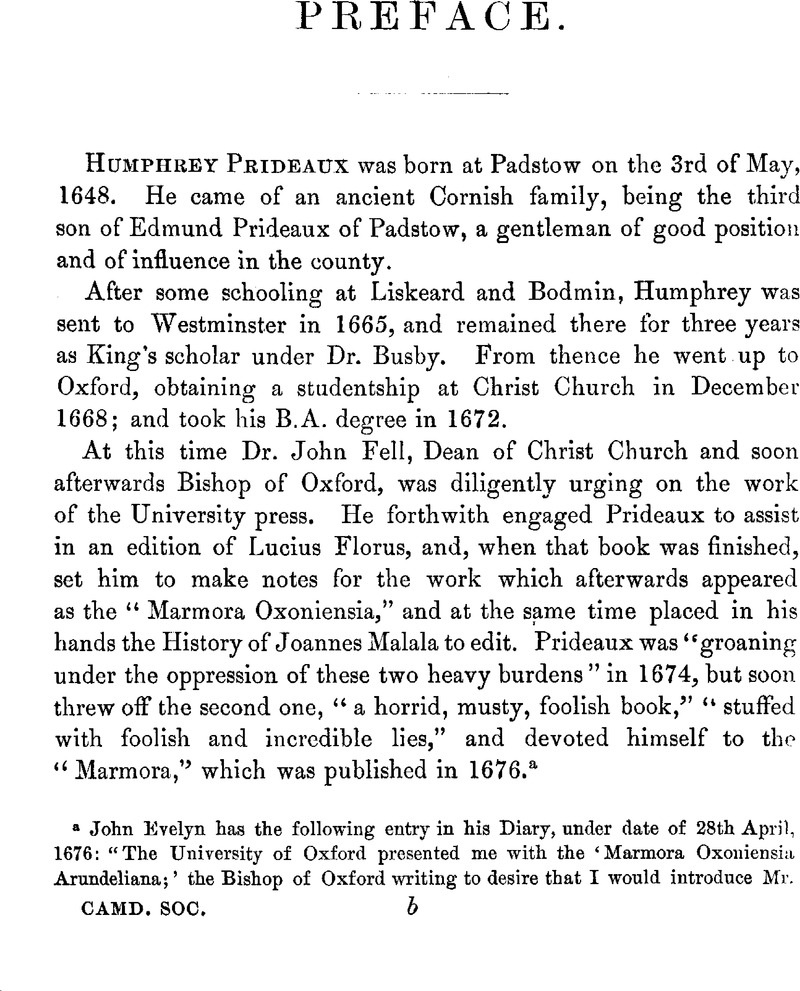No CrossRef data available.
Article contents
Abstract

- Type
- Preface
- Information
- Copyright
- Copyright © Royal Historical Society 1876
References
page i note a John Evelyn has the following entry in his Diary, under date of 28th April, 1676: “The University of Oxford presented me with the ‘Marmora Oxoniensia Arundeliana;’ the Bishop of Oxford writing to desire that I would introduce Mr. Prideaux, the editor (a young man most learned in antiquities), to the Duke of Norfolk, to present another dedicated to his Grace, which I did, and we dined with the Duke at Arundel House, and supped at the Bishop of Rochester's, with Isaac Vossius.”
page ii note a He became B.D. in 1682, and D.D. in 1686.
page iv note a “Life of the Rev. Humphrey Prideaux, D.D., Dean of Norwich, with several Tracts and Letters of his upon various subjects never before published.” London, 1718, 8vo. The outline of his life contained in this book seems to have been drawn from information supplied by his son, Edmund Prideaux, in a letter to Dr. Thomas Birch, dated 26 Aug., 1738, and now preserved in the British Museum, Add. MS. 4223, f. 155.
page vi note a Reliquiæ Hearnianæ; ed. P. Bliss. Oxford, 1857, p. 844.
page vii note a Of Ellis's five brothers, all of whom were educated at Westminster, three rose to some distinction, though in very different careers. William became secretary to the Duke of Tyrconnel, Lord Lieutenant of Ireland, was knighted, and was subsequently Secretary of State to James II. at St. Germains, and treasurer to the Old Pretender. Philip was kidnapped by the Jesuits and brought up at St. Omer; became chaplain to Mary of Modena, consort of James II., and eyentually Bishop of Segni. Welbore was Dean of Christ Church, Dublin, a Privy Councillor, and successively Bishop of Kildare and Meath. His son Welbore was the first Lord Mendip. Two of the brothers are mentioned in these letters.—See Welch, Westminster Scholars; and the account of the Ellis family in The Ellis Correspondence, ed. Hon.Ellis, G. Agar, 2 vols. London, 1829Google Scholar, which, however, is incorrect in some details.
page viii note a In “A Sermon against Adultery,” an imitation of the Second Satire of the First Book of Horace.
page xi note a King, Lord, Life of John Locke, 1830, vol. i. p. 279Google Scholar


